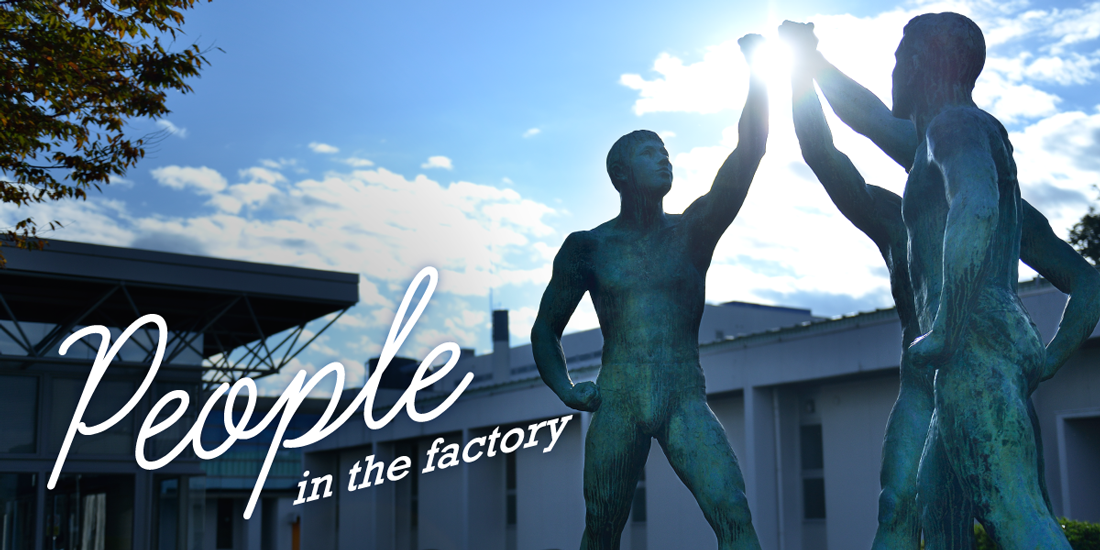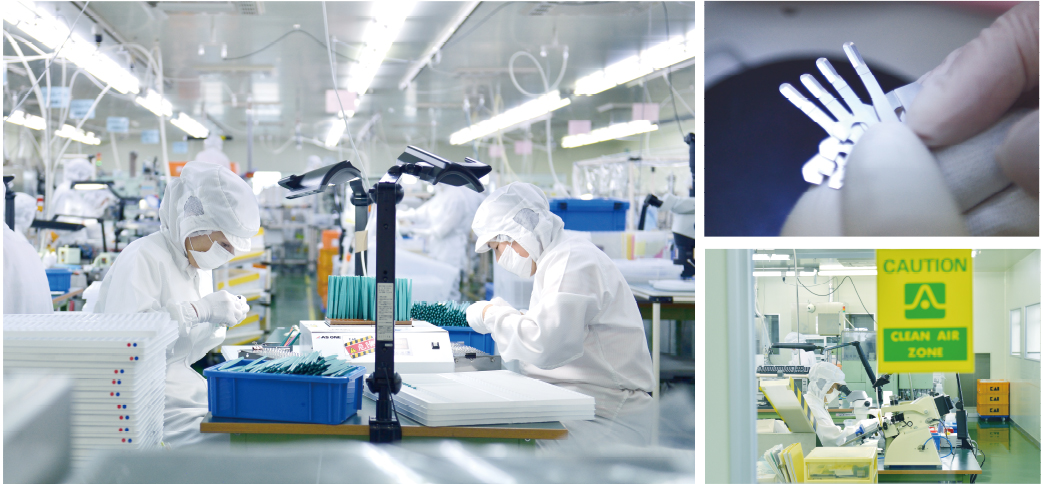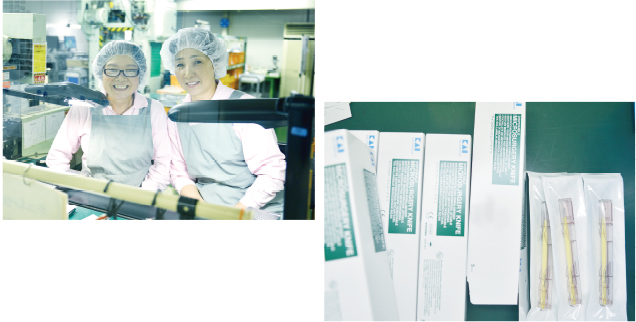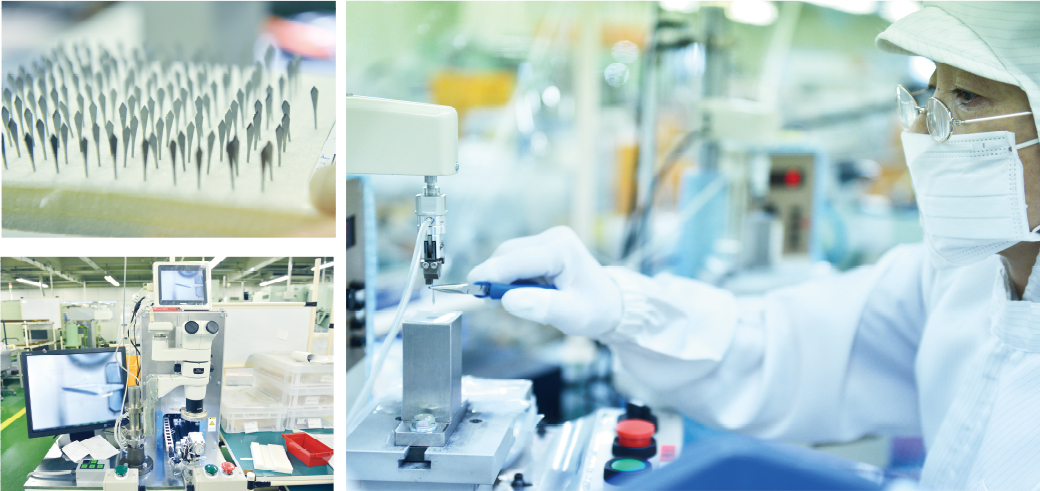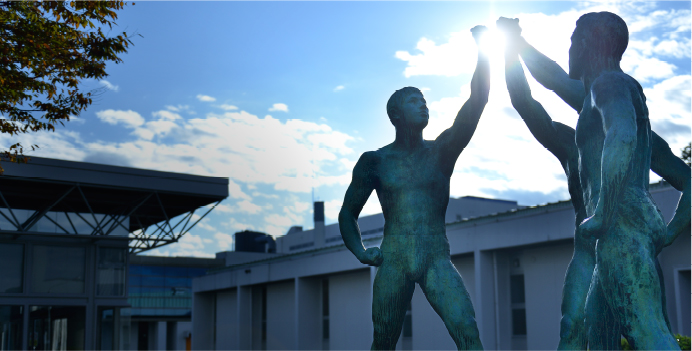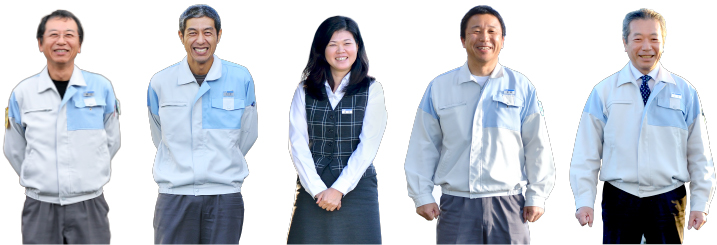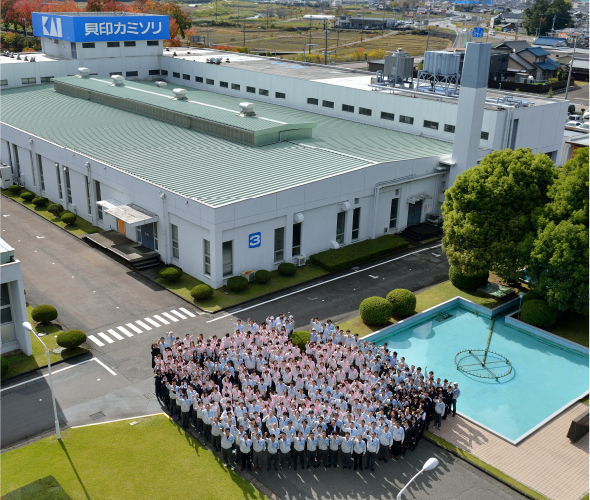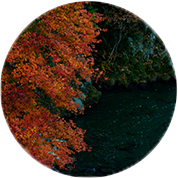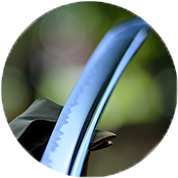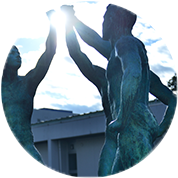Employees who work in a sterilized room assembling and wrapping medical equipment wear sanitation suits.
Surgical blades, especially those destined for ophthalmologists, are thoroughly examined with an electron microscope to check for even the tiniest of scratches.
The inspection room. Surgical blades meant for eye surgery are carefully examined with a powerful stereomicroscope.
Each blade’s angle and shape is checked.
Since this equipment will affect people’s lives, there is a rigorous quality control system in place.
One employee said: ‘I can’t lose focus for even a second.’
